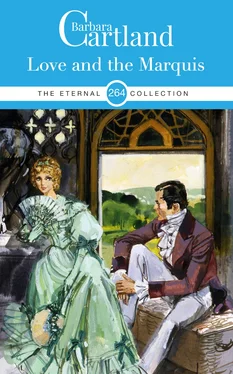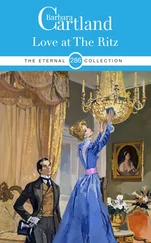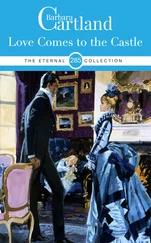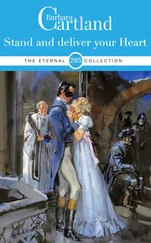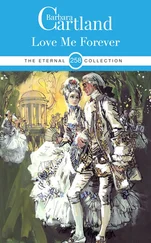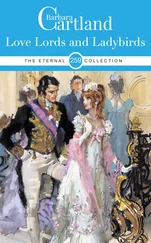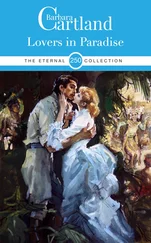Citrus trees were cultivated by the Hebrews from about 500 B.C. There is a Talmudic legend that the citron was the fruit Eve offered to Adam in the Garden of Eden.
The word for ‘citrus’ in modern Hebrew is hadar. It is used in Leviticus 23, 40 to describe ‘the fruit of a goodly tree’ which grew in the Garden of Eden, the so-called ‘Tree of Knowledge’.
The ‘bitter orange’ was brought from the East by the Arabs and the Moors cultivated it in Spain. In England orangeries became fashionable in the sixteenth century and many great architects of the eighteenth century were commissioned to design them.
The Regency architect, Humphrey Repton, first designed top-lighting and also added the orangery or conservatory to the house.
The greatest difficulty in growing citrus was heating. Queen Henrietta Maria’s orangery in 1649 was lined with mattresses and reeds. An orangery at Ham House in Richmond used heat from a laundry arranged in the same building to warm the plants.
There are very fine orangeries at Warwick Castle (erected in 1780), at Burleigh House, first designed for Queen Elizabeth’s Lord Chamberlain in 1561 and replaced two hundred years later by the famous Capability Brown and the largest and most magnificent at Morgan Park was built in 1790.
The Earl of Kingsclere walked restlessly about the very impressive salon, not noticing the many magnificent pictures, the china, which in itself was worth a fortune, or the array of hothouse flowers that decorated every table.
There was a frown between his eyes and the lines on his very handsome face that had beguiled so many women were sharply etched.
He was worried and it showed in every movement he made and in every breath he drew.
He walked to the grog tray in the corner, which one would not have expected to find in such a very feminine room and poured himself out a glass of champagne.
He drank deeply as if he was in need of it and then with what appeared almost a reckless gesture he raised his glass and toasted aloud,
“To the future!”
As his voice echoed round the room, the door opened and the butler announced,
“Lady Imeldra, my Lord.”
The Earl started and then stared incredulously as a young girl, for she was no more, came running down the room towards him to fling her arms around his neck.
“Papa! I was so afraid that you might be away when I arrived.”
“Imeldra!” the Earl exclaimed. “What are you doing here? I was not expecting you.”
“I know that, Papa. I have run away!”
Her arms tightened around him and she kissed her father on both cheeks so that it was impossible for him to answer her.
Then he put his hands on her shoulders to hold her away from him so he could scrutinise her.
“You are lovely,” he smiled. “Far lovelier than I expected you to be.”
“Oh, darling Papa, I did so hope you would think so.”
“You are very like your mother,” the Earl said in a low voice, almost as if he spoke to himself. “And she was the loveliest woman I have ever seen.”
Imeldra would have kissed him again, but he held her firmly from him and saying,
“You have a great deal of explaining to do. Why have you run away from school?”
“To see you!”
The Earl’s eyes twinkled.
“I don’t believe that is the only reason.”
“Actually it is not,” Imeldra replied. “I was in trouble and I suspect they will sack me anyway.”
The Earl laughed as if he could not help it.
“That sounds more like the truth. Now come and tell me all about it. Would you like a glass of champagne to sustain you?”
“May I really have one?”
“I imagine you are old enough now and when you arrived I was just drinking a toast to the future.”
She looked at him questioningly.
“That sounds most unlike you, Papa, and I have never known you to drink when you are alone.”
The Earl did not answer. He merely poured her out a very small amount of champagne and filled his own glass again.
Then he walked to the window where the pale early April sunshine was just percolating through the clouds.
Then he sat down.
There were two chairs and, as Imeldra sat down opposite him, his eyes were on her hair, appreciating that the sun picked out the red lights amongst the gold.
He gave a deep sigh.
“You are beautiful, which is what I so hoped you would be.”
It was not a compliment. He was merely stating a fact that Imeldra’s eyes seemed to hold the light in them as if somebody had lit a candle within her.
They were very unusual eyes, large, liquid and their depth seemed to hold a mystery that the Earl knew would make a man look and look again as he attempted to solve the secret that lay hidden in them.
Then, as if he forced himself to be practical, he enquired,
“Now tell me why you are here.”
“Do you know how old I am, Papa?”
“Not old enough to leave school.”
“But I am! And it is very humiliating to be the oldest pupil by several months.”
“Is that true?” the Earl enquired.
“I promise you it is and honestly, Papa, I can learn no more there.”
She gave him a quick glance as if she expected him to argue with her and, when he did not, she went on,
“I am the Head Girl. I am top in every subject and it was really embarrassing last Speech Day when I won almost every prize. Finally I am not prepared to spend the Easter holidays alone.”
“Alone?” the Earl asked sharply.
“Oh, Papa, you must remember that schools have holidays. All the girls are going home next week except for me.”
“But I thought that something was always arranged for you in the holidays.”
“I have been fortunate that one of my friends has always invited me home with her, but now I have no invitations.”
“Why ever not?” the Earl asked mystified.
Imeldra’s eyes twinkled as his had done and there was a mischievous smile on her lips as she asked,
“Why do you think?”
“If I said what is in my mind, it would make you very conceited.”
“Yes, that is the reason. I am too pretty. My friends are grown up and they dislike seeing the young men who they think are courting them transferring their attention to me.”
“I suppose it is understandable,” the Earl murmured.
“Of course it is, dearest Papa, I am your daughter and – Mama’s.”
Imeldra’s voice softened as she spoke of her mother and she was almost sure that she caught a look of sadness in her father’s expression before he remarked,
“I am beginning to understand your reasons for leaving, Imeldra, but your decision to run away could not have come at a worse moment.”
“Why?”
For a moment the Earl seemed to feel for his words.
Then he said almost recklessly,
“Because I am doing exactly the same thing!”
Imeldra sat bolt upright.
“Oh, no, Papa, not again?”
“I don’t know what you mean by that,” her father answered. “This is different.”
“Dearest Papa, you know as well as I do that each new love affair of yours always seems different until you grow bored.”
The Earl rose to his feet as if it was impossible to sit still and he walked across the room and back again before he said,
“All right, Imeldra, I am in a mess and there is nothing I can do about it. So there is no use in your arguing with me.”
“I would not do that. But I realise now that I should never have left you.”
“Of course you had to leave me,” the Earl countered.
“You were too old to live the life I was leading. Now I think of it, it is a good thing that I am going abroad.”
Читать дальше
